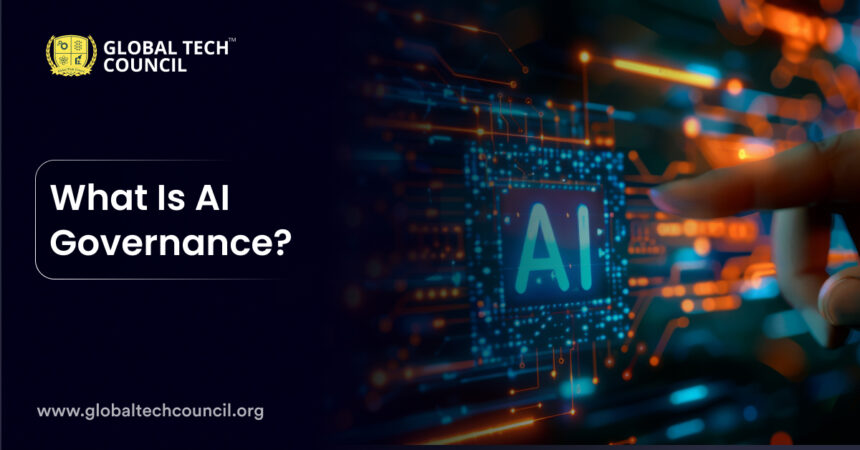From OpenAI’s ChatGPT to the widespread adoption of generative AI, the AI panorama is witnessing an amazing paradigm shift. Nevertheless, as AI turns into more and more pervasive, it raises important considerations relating to ethics, accountability, and accountable use. That is the place AI governance steps in as an important aspect to make sure AI compliance and outline the way forward for this groundbreaking know-how.
AI governance refers back to the framework of insurance policies, guidelines, and laws that govern the event, deployment, and use of AI techniques. It performs a pivotal position in guaranteeing that AI applied sciences are developed and utilized in a fashion that aligns with moral requirements, safeguards in opposition to biases, and promotes transparency. On this article, we’ll delve into the importance of AI governance and why it’s important for shaping the accountable and sustainable development of AI applied sciences.
With the surge in AI adoption and the proliferation of generative AI, it turns into essential for organizations and professionals to remain abreast of AI compliance and greatest practices. To navigate this complicated panorama, people can equip themselves with AI developer certification from World Tech Council. These complete programs not solely present a deep understanding of AI governance but additionally empower professionals to harness AI’s potential responsibly and ethically.
What’s Synthetic Intelligence (AI) governance?
Synthetic Intelligence (AI) governance performs an important position in shaping the accountable and moral growth and use of AI and machine studying applied sciences. It serves because the authorized framework to make sure that AI analysis and purposes are geared in direction of benefiting humanity and navigating the adoption of those techniques in a accountable method.
With AI’s speedy integration into numerous sectors like healthcare, transportation, finance, schooling, and extra, governance has turn into much more important. It goals to deal with the moral challenges and guarantee accountability in technological developments.
AI governance focuses on key areas comparable to justice, information high quality, and autonomy. It dictates how algorithms form our day by day lives and who oversees their implementation. Among the major considerations that governance addresses embody evaluating AI’s security, figuring out acceptable sectors for AI automation, establishing authorized and institutional buildings round AI know-how, defining guidelines for controlling and accessing private information, and addressing ethical and moral questions associated to AI.
The Significance of AI Governance: Understanding and Managing Danger
AI governance and regulation play an important position within the AI panorama to manage and handle the dangers related to the event and adoption of AI applied sciences. As AI continues to form numerous industries and features of society, it turns into crucial to develop a consensus on the appropriate stage of threat related to the usage of machine studying techniques.
AI governance goals to ascertain frameworks and tips that allow organizations and people to navigate the complexities of AI with a robust emphasis on threat administration. The first aim is to make sure that AI is developed and utilized in a fashion that aligns with moral requirements, respects privateness, and adheres to authorized necessities.
To realize efficient AI governance, professionals within the discipline can profit from Synthetic Intelligence certification.
The Challenges of Governing AI: Lack of Centralized Regulation and Context-Dependent Dangers
One of many important challenges in AI governance is the absence of a centralized regulation or threat administration framework for builders and adopters to observe. In contrast to conventional industries, AI growth operates in a fast-evolving panorama with ever-changing dangers and complexities.
The dearth of centralized regulation poses a problem for builders and adopters who should navigate the moral and accountable use of AI. With out clear tips, it turns into difficult to strike the proper stability between innovation and threat administration. Within the absence of a regulatory framework, particular person organizations could undertake various approaches to governance, resulting in inconsistent practices throughout the AI panorama.
Assessing Dangers in Context: The Case of ChatGPT
Take, for instance, the case of ChatGPT, the place enterprises should grapple with the potential unfold of bias, inaccuracies, and misinformation via the AI system. Moreover, they should deal with considerations about person prompts probably being leaked to the AI platform supplier, OpenAI, and the impression of AI-generated phishing emails on cybersecurity.
Addressing Inaccuracies and Misinformation: Influence on Public Opinion and Politics
Within the broader context of enormous language fashions (LLMs), regulators, builders, and business leaders should discover methods to reduce inaccuracies and misinformation. As these AI techniques have the potential to affect public opinion and politics, it turns into essential to make sure the integrity and reliability of the data they supply.
Balancing Regulation and Innovation: Nurturing Smaller AI Distributors
As regulators work in direction of mitigating dangers related to AI, they need to strike a fragile stability that doesn’t stifle innovation, significantly amongst smaller AI distributors. Encouraging innovation whereas guaranteeing moral and accountable AI practices stays a important facet of AI governance.
Conclusion
AI governance is crucial to handle dangers, guarantee accountable AI adoption, and strike a stability between innovation and regulation. As AI continues to evolve, staying knowledgeable and geared up with the proper expertise via the World Tech Council’s AI programs will improve professionals’ skill to form the way forward for AI in an moral and sustainable method.









